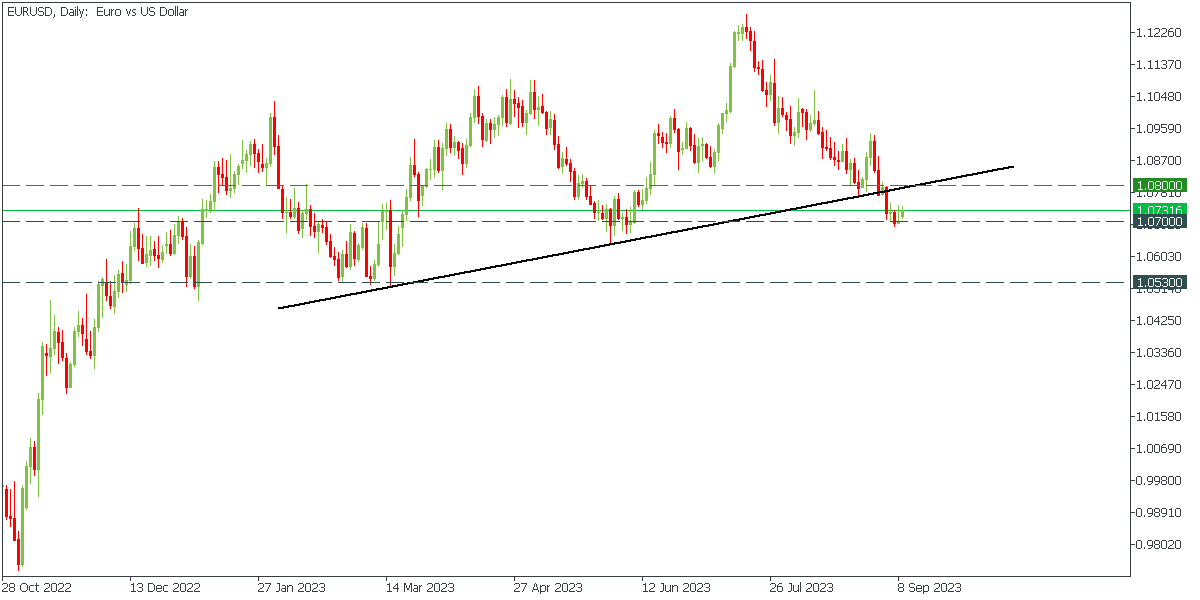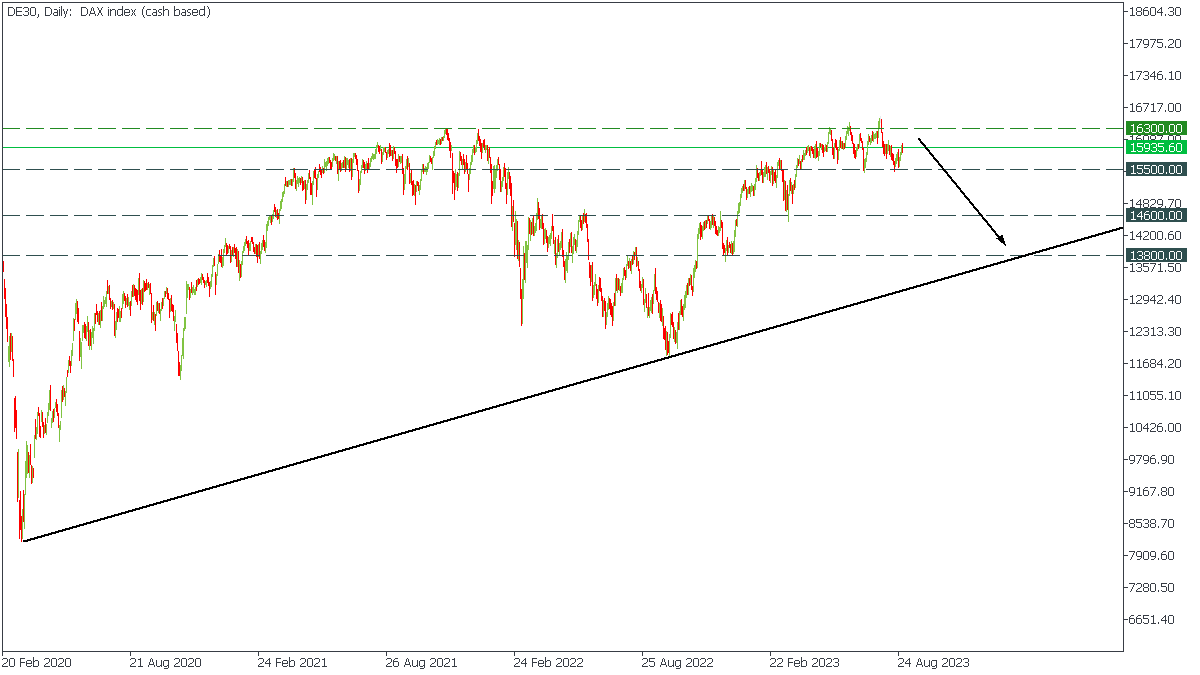Russia and Saudi Arabia recently announced that oil supply cuts will be extended until the end of 2023. The two countries will cut supply by 300,000 and 1 million barrels per day, respectively. Previously, the markets had expected the countries to only extend this agreement by a month. As a result of the announcement, the market surged, with XBR/USD reaching $91.00.
This is its highest point since mid-November. But more importantly, prices confidently have broken out of the $70-89 range, where they had been stuck since last year. Now, the path upward is open for them, and the former resistance zone should provide strong support.
Experts predict that unless there is a sharp economic downturn, these supply cuts will lead to a profound deficit in global oil balances and should push oil prices significantly above $90 per barrel.
Why did oil prices boost the USD?
There are several factors supporting the US dollar in times of oil market growth:
- Increased Demand for USD: Oil is primarily priced and traded in US Dollars globally. When oil prices rise, countries and entities that import oil must exchange more currencies for USD to purchase oil. This increased demand for USD increases its value in the foreign exchange market.
- Safe Haven: The US Dollar is often considered a safe-haven currency during economic uncertainty or geopolitical tensions. When oil prices surge due to factors like supply disruptions or geopolitical conflicts, it can create uncertainty in financial markets. Investors may seek safety in assets denominated in USD, causing an increase in demand for the currency, and consequently its value.
- Impact on Inflation: Higher oil prices can lead to inflationary pressures in many countries, as oil is a crucial component in production and transportation. In the past two years, the US successfully fought inflation without heavy damage to the economy. As more inflation risk approaches, investors may prefer investing their funds in the safe-haven economy.
- Economic Strength: The United States is one of the world's largest oil producers. The US economy often benefits from increased oil production and export revenues when oil prices are high. This economic strength can lead to a stronger USD.
Considering the current state of the global economy, where the main problem over the past two years has been high inflation, elevated energy prices will put new pressure on central banks. This will lead to a further tightening of monetary policies in the world's leading economies. For now, the US economy is coping with high rates much better than its Western neighbors, such as Europe, where several countries have already fallen into recession. Moreover, the Chinese economy is also experiencing an economic downturn, so further oil price increases will strengthen the greenback as a safe asset.
EUR/USD Outlook: 
Recently, EUR/USD broke below the global trendline and reached the 1.0700 support level, providing a massive signal for the overall trend reversal. Before going lower, the pair may retest the breakout, reaching 1.0800 and providing better entries for sell trades. Our middle-term target is 1.0630.
Rising Oil Prices May Send the German Stock Market Down
Europe is one of the key oil importers in the world. In this article, we will use as an example the German economy, which is already in an extremely poor state. Rising oil prices may be the trigger that will push the German economy into a deep crisis.
Earlier, the International Monetary Fund called Germany the only major economy to experience contraction in 2023, lagging behind the growth of the United States, the United Kingdom, Spain, and France over the next five years.
In addition to high key rates and inflation, the German economy faced the following difficulties:
- The country's hesitance to invest in modern technologies, its heavy reliance on affordable Russian gas, and its overbearing bureaucratic system slow down business growth. Additionally, geopolitical tensions and environmental concerns have exacerbated these challenges.
- Transitioning to eco-friendly energy sources presents difficulties as well. Germany's substantial energy consumption and inadequate infrastructure have impeded progress in this vital sector, potentially undermining its global competitiveness.
- The labor market poses equally worrisome issues. There has been a spike in the lack of skilled workers, with more than 40% of German companies facing deficits in qualified personnel. The upcoming retirement of approximately two million Germans within the next five years further compounds this challenge.
- Financially, Germany has experienced substantial capital outflows, exceeding $630 billion since 2013. Over 40% of these outflows occurred in just the past two years.
Rising prices for energy resources, which Germany desperately needs, will put significant inflationary pressure on the economy. This will force the ECB to continue its hawkish policy, and the moment of easing that markets are so eagerly awaiting won't come soon. Combined with the abovementioned factors, this will pressure the German economy in the coming years, decreasing the standard of living and boosting social instability. In these conditions, we cannot expect any excellent stock market performance. That's why we are adamantly bearish regarding the DAX index.
The DAX stock market index is currently hovering near its all-time high (ATH), exhibiting a distinct rounding reversal pattern that suggests significant market players are repositioning themselves. This pattern resembles one seen in the autumn of 2021, which ultimately led to a 26% drop in the index by the following autumn. With this historical precedent in mind, traders may anticipate a potential price decline in the fall of 2023.
In such a scenario, the following levels could be the targets:
- Short-term speculative targets: 15 500
- Medium-term targets: 14 600, 13 800
Summary
After Argentina, Egypt, Iran, the UAE, Saudi Arabia, and Ethiopia join BRICS, the organization will have 44.35% of the world's oil reserves, which will allow them to provide significant support to oil prices. Therefore, currencies and stock markets of economies dependent on oil imports may stay under heavy pressure for the near future - at least until they finish developing alternative energy sources.
